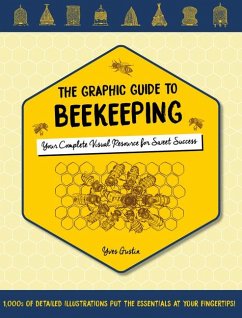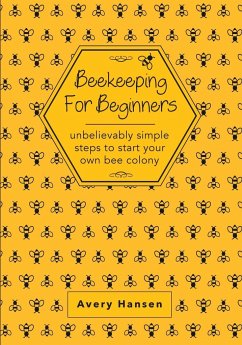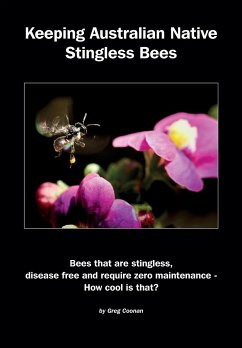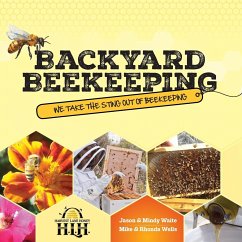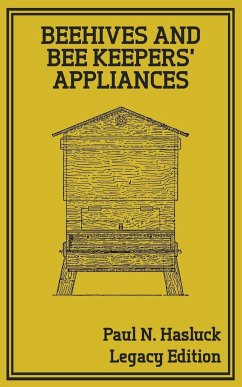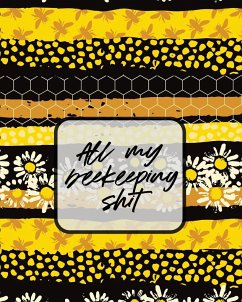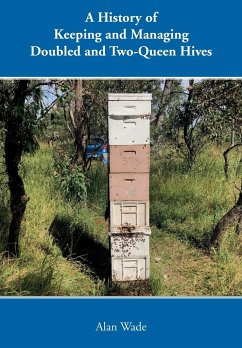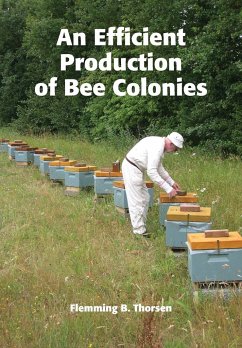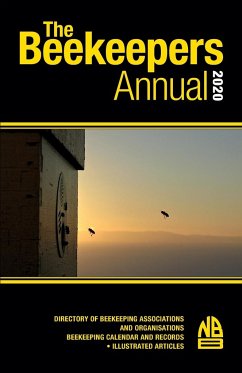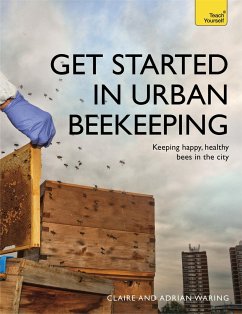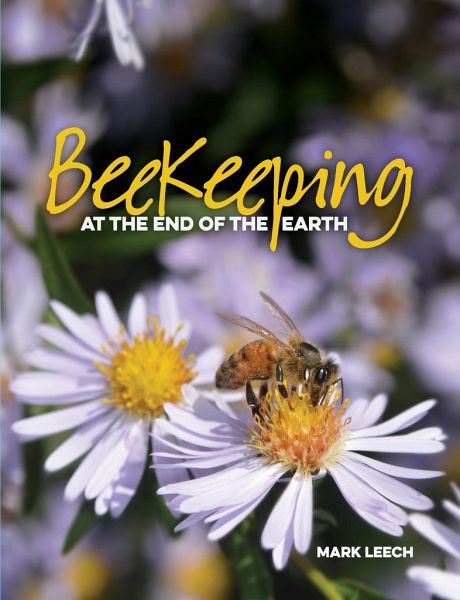
Beekeeping At The End Of The Earth
Versandkostenfrei!
Versandfertig in über 4 Wochen
31,99 €
inkl. MwSt.

PAYBACK Punkte
16 °P sammeln!
Beekeeping at the End of the Earth, an essential read for learning about beekeeping in a cool temperate climate with a focus on Tasmania our island home. One hundred beekeepers one hundred different ways to keep bees. Beekeeping At The End Of The Earth is a practical insight into cool climate beekeeping with a focus on Tasmania, our island home. Richly illustrated with unique diagrams and floral calendar, useful tables and descriptive images, the pictures help tell the story. Promoting children as the future of beekeeping while honouring our master beekeepers, Beekeeping At The End Of The Eart...
Beekeeping at the End of the Earth, an essential read for learning about beekeeping in a cool temperate climate with a focus on Tasmania our island home. One hundred beekeepers one hundred different ways to keep bees. Beekeeping At The End Of The Earth is a practical insight into cool climate beekeeping with a focus on Tasmania, our island home. Richly illustrated with unique diagrams and floral calendar, useful tables and descriptive images, the pictures help tell the story. Promoting children as the future of beekeeping while honouring our master beekeepers, Beekeeping At The End Of The Earth provides a valuable resource for this lifetime of learning. Tasmania our island home is a paradise of wild unspoilt lands, mountains and beaches, an adventure wonderland and a foodies dream. Our apiaries, gardens, farms, fisheries and vineyards produce food of the highest quality providing our applauded restaurants and cafes. Honey features as a natural food with globally unique leatherwood honey being much sort after and is the mainstay of our industry. Tasmania is also the home to Leptospermum scoparium, Manuka, made famous by New Zealand beekeepers. Whether you are thinking about beekeeping, are a beginner or seasoned practitioner, you will find useful information for cool climate beekeeping anywhere on the planet in Beekeeping At The End Of The Earth. The Chapter list provides an overview of the content: Introduction To Begin The Bee Hive Location Urban Equipment Record Keeping Stings Swarms Seasonal Management Flora Harvest, Process, Market, Sell Honey Queen Management & Rearing Nutrition Disease & Pests Alternative Beekeeping & Innovation Glossary Bibliography Native Flora Calendar Non-native Flora Calendar The majority of beekeepers in Tasmania use Langstroth hives and are involved in migratory beekeeping following peak honey flows. We look at urban beekeeping, the development of an urban code of practice, even rooftop hives. Alternative Beekeeping and Innovation explores a number of different approaches based on close to nature concepts including Warré and top-bar hives. The Flow® Hive, the most significant innovation in beehive design and honey collection in over 100 years is applauded. A guide to disease and pests helps understand issues and manage healthy colonies while providing solutions to their impacts. Biosecurity is essential to the Australian and Tasmanian honey bee industry and protecting bees is vital for the benefit of pollination dependent food crops. Understanding your local and regional flora and flowering times helps beekeepers move hives to honey flows and identify beneficial plants for planting. Whether you have one hive or hundreds Beekeeping At The End Of The Earth is a must read for every cool climate beekeeper.





